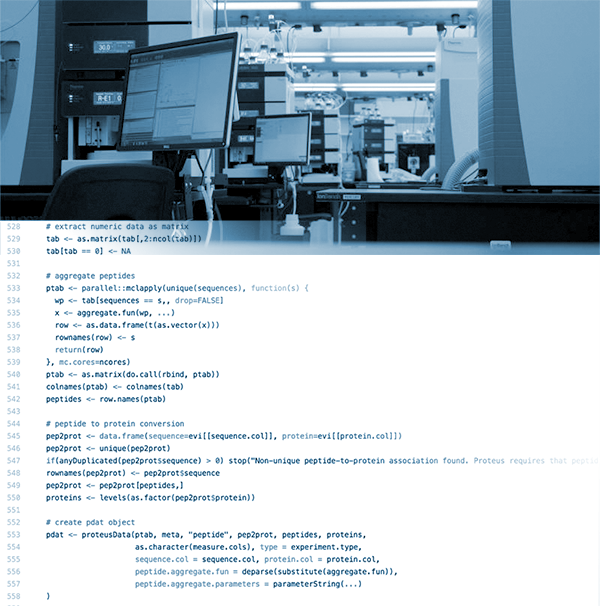High-Throughput MS
Protein mass spectrometry (MS) is a method of identification and characterisation of proteins in biological samples. Techniques like stable isotope labelling of amino acids in cell culture (SILAC) or tandem mass tag (TMT) have been developed to aid quantitative proteomics. The high-throughput output of MS experiments often requires advanced bioinformatics analysis to do, e.g., differential expression or functional analysis.
The DAG has collaborated on several projects involving peptide and protein localisation, quantification and modification (e.g. phosphorylation), using label-free, SILAC and TMT approaches.
Relevant Publications
| Ly T. et al. Comprehensive proteome-wide analysis of protein abundance and turnover remodelling during oncogenic transformation of human breast epithelial cells 2018 Wellcome Open Research 3:51 |
MS Tool Development
While working with high-throughput proteomics data we noticed a gap in bioinformatics tools for downstream analysis of MaxQuant output. In particular, the differential expression between biological conditions is non-trivial for data with multiple missing values typical for label-free MS/MS proteomics. A popular tool Perseus uses a simple t-test combined with random imputation, which may lead to false negatives. We developed an R package Proteus, which allows for comprehensive analysis of proteomics data and uses an advanced differential expression tool limma to circumvent problems with missing data, increasing sensitivity over a simple t-test.
Proteus is available at GitHub.
